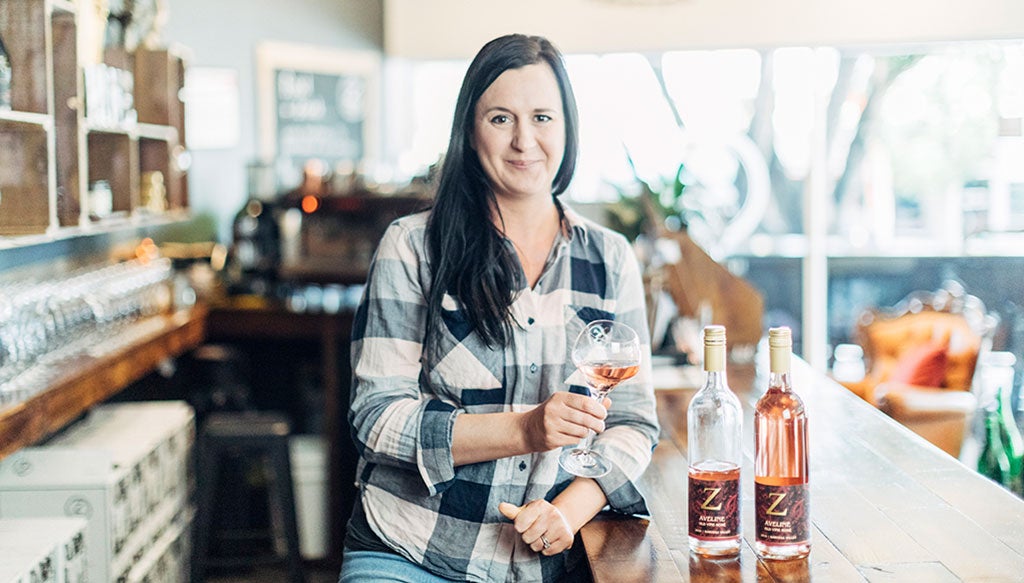
Janelle Zerk
As soon as she could reach them, a young Janelle picked grapes for pocket money in the family vineyard. Her ancestors were some of the first European pioneers in the Barossa Valley, and her family have lived on an adjoining property for five generations. Drawing on this history, Janelle sources grapes from some of the oldest vines in the world and turns them into brilliant modern wines that win awards and have established the Zerk family as pioneers all over again.

Capturing history in a bottle
With a childhood spent among the vines and a knack for science, winemaking was an easy career choice for Janelle. In fact, nearly all her siblings are involved in wine.
“Our brother looks after vineyards and the family vineyard, I make wine and my sister Kristen does wine marketing,” says Janelle. “And then we have the black sheep, Danielle, who’s a psychologist. We say she’s our best customer, so she completes the circle: growing, making, selling, drinking.”

After honing her craft in wineries around Australia and in France, Italy and the US, Janelle launched Z Wines with her sister Kristen. They do it all themselves, from sourcing the grapes to selling the wine – and they do it well. Z Wines is rated 5 stars in Halliday Wine Companion and came third only to Penfolds Grange in Winestate magazine’s 2018 International Shiraz Challenge.
“We value and hold onto our heritage, culture and tradition, but we can also now bring it into this day and age, and be females and owners and operators of our own business,” says Janelle. “We hope our children can see that we worked really hard to get where we are and it wasn't always that way in the Barossa.”
Using hand-picked grapes from vineyards right across the region, Janelle focuses on Grenache, Shiraz and Cabernet Sauvignon, plus Riesling from nearby Eden Valley. The wine is handcrafted in small batches and bottles are individually numbered.
“The more I saw of the Barossa, the more I became curious about little old vineyards that were in unusual places,” says Janelle. “And each different patch of soil and vineyard has different flavours and different expressions in the finished wine.
“It’s nice to be able to try and translate the history and what’s happened here in the Barossa and have it in a bottle for people to taste.”









